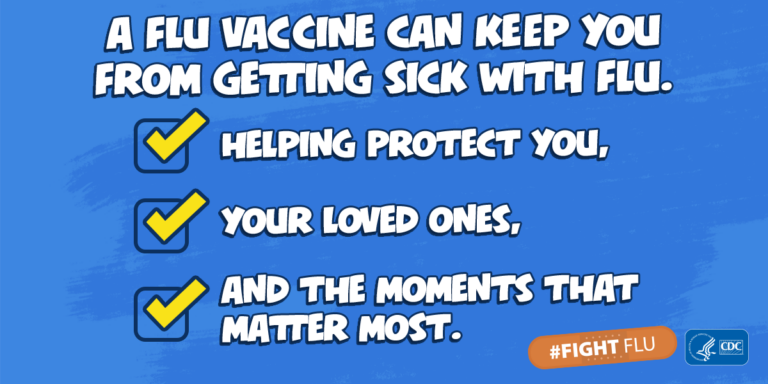
Who would have thought that we would be dealing with a pandemic that has impacted every aspect of our lives? Some of us may be quarantined, staying in place, or confused as to what to do. COVID-19 is currently understood to be highly infective and easily transmittable from person to person through droplet and contact spread.
In the near future there is a high probability that we may be one of those who become infected, or we know someone who has been impacted by Covid-19. Hopefully, recovery will be quick, and there will be a return to good health. Regrettably, given the statistics, we will all have the unfortunate opportunity to have someone close to us suffer the more serious impact of this virus, and need hospitalization. This is when it is so critical to have the Advance Directive documentation to guide the medical team as to your wishes. Depending on your age, overall medical condition and availability of resources in your area your Advance Directive becomes more critical.
Care Allocation
The issue of how care resources will be allocated is a hot topic for healthcare professionals and health systems. Care prioritization is no longer a hypothetical, it is becoming a reality. The American healthcare system is quickly learning from China, Italy, Spain and the UK that resources are finite, and will need to be equitably distributed. This is in contrast to the “first come-first served” that some institutions are using. In reality, field medicine (i.e. wars and natural disasters) has been utilizing triage protocols focusing the care on those individuals that had the best chance of making it through the medical crisis.

Dynamic Times
What is known about COVID-19 is being constantly updated. This includes testing measures, management and the handling with the compassion the volume of individuals who are dealing with COVID-19. Individual fears and desires that “everything” be done for your loved one, may not happen. Resources are very limited, and every effort is being made to use them in a way that is fair for everyone. Be prepared that for the fact that despite the best of intentions, not everyone will get all the available resources.
Crisis Standards of Care
Utah’s Crisis Standards of Care Guidelines outlines the allocation of patient care resources during an overwhelming public health emergency. The focus of care shifts to the “thoughtful use of thoughtful use of limited resources for the best possible health outcomes for the population as a whole. Resources are shifted to patients for whom treatment would most likely be lifesaving and whose functional outcome would most likely improve with treatment. Such patients should be given priority over those who would likely die even with treatment and those who would likely survive without treatment.”[i]
Certain preexisting and acute medical conditions may exclude admission or transfer to critical care:
- In a coma or vegetative state; with severe dementia; advanced untreatable neuromuscular disease or other malignant disease
- In end-stage organ failure or failures; or suffering from traumatic brain injury or severe stroke with minimal chance of recovery
- In cardiac arrest; with severe acute trauma; or severe burns with less than a 50% chance of expected survival
- Over 90 years old
New York, Alabama, Minnesota and Tennessee are among the states that also have policies for crisis care. Some of these policies address ventilator allocation[ii]. The Institute of Medicine issued in 2009, Guidance for Establishing Crisis Standards of Care for Use in Disaster Situations, all these resources are guiding, practitioners who have to consider the severity of illness, prognosis, and the amount of resources needed, as they determine how the scare resources are to be allocated. The reality is that practitioners are already making some of these determinations and health systems are working cooperatively to address the allocation of resources in a respectful, ethical and equitable way.

Individuals with Disabilities
The issue of managing the care of individuals with disabilities is challenging given the Federal Americans with Disability Act. Individuals with disabilities are asking the federal government to address care rationing that would deny individuals with disabilities treatment for COVID-19. It will be a balancing act; no matter what, every effort to keep patients comfortable will be made. A recent HHS bulletin notes “Decisions by covered entities concerning whether an individual is a candidate for treatment should be based on an individualized assessment of the patient based on the best available objective medical evidence.”
On April 8, 2020 Alabama removed controversial ventilator guidelines that denied COVID-19 care to the disabled. This was in response to the state’s preparedness plan that prioritized the treatment of able-bodied individuals over people with physical and intellectual disabilities. This was in response to a complaint filed with the Health and Human Services (HHS) Office for Civil Rights (OCR). Allocation of resources is still a critical issue facing front line practitioners, and remains an issue to contend with in these very unusual times.
Palliative Care and Hospice
If there was ever a time to focus on keeping individuals comfortable, this is the time. Palliative care and hospice services are designed to keep individuals comfortable for when aggressive medical care is no longer appropriate. It is the approach of alleviating symptoms and keeping your loved one comfortable. Even if there is no Advance Directive, consider how your loved one would want to be cared for during this crisis. Be realistic recognizing all that is currently known. Would your loved one prefer to pass on peacefully once there is little chance that they will recover? Acknowledge that these are extraordinary times.
Personal Action Plan
- Complete an Advance Directive & upload to a registry – keep it handy and not in a safe deposit box
- Name a healthcare surrogate/proxy
- Ensure your healthcare surrogate/ proxy is aware of the designation and will advocate for you
- Name a backup healthcare surrogate/ proxy is aware of the designation and will advocate for you in the absence of your primary choice
- Avoid probate – contact your elder attorney & financial planner
- Ensure that beneficiaries are named on life insurance policies
- Ensure all property disposition is addressed – there are state specific nuances
- Take the time to communicate with those you love
- Learn more about palliative care and hospice – the symptom management approach for when the underlying condition can no longer be treated
- Reach out to those you have a strained relationship
Stay Safe
- Handwashing
- Social distancing
- Keep contact numbers of family and friends handy
No matter what, kindness, compassion, love, support and understanding must never be rationed!
Resources
CDC Coronavirus 2019 (Covid-19)
Utah Crisis Standard of Care Guidelines
Could COVID-19 force Utah hospitals to prioritize care?
Advanced Care Planning – The Gift of Love
Your Spokesperson – Your Champion
The nightmare of rationing health care
Alabama removes controversial ventilator guidelines that denied coronavirus care to disabled
Minnesota Health Care Considerations – Crisis Standards of Care
[i] Utah Crisis Standards of Care Guidelines. (2019, January 17). Retrieved March 28, 2020, from https://coronavirus.utah.gov/wp-content/uploads/Final_Utah_Crisis_Standards_of_Care_011719-1.pdf
[ii] VENTILATOR ALLOCATION GUIDELINES New York State Task Force on Life and the Law New York State Department of Health. (2015, November). Retrieved March 30, 2020, from

